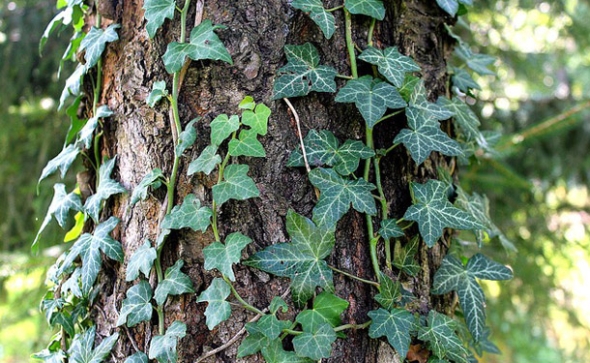The greenery in Georgia is one strong reason so many families are making their move to this beautiful state. Current residents know that Georgia has a great variety of plants, trees, shrubs, bushes, and ivy. Though this diversity is lovely, it can also be overwhelming for property owners that want a healthy yard. Ivies in particular must be properly planted and maintained if you want to avoid an aggressive duel between your greenery for water and nutrients. At Sesmas Tree Service, our ISA-certified arborists have a solid understanding of common ivies in Georgia as well as their effects on the landscape. This article should help you get a slight understanding for yourself. If you have any particular questions or concerns, then feel free to call Sesmas Tree Service to consult with an expert for any type of tree care and tree removal services in Atlanta area.

Reasons to Be Wary of Ivy
Ivy might look attractive and nice but looks can be deceiving. In many cases, ivy can be harmful for the other plants on your property:
So, you have had a tree removed or you plan on removing a tree. What do you do about the stump?…
Learn MoreThe reasons for tree removal vary quite a bit. Perhaps you've moved into a new home and want to get…
Learn MoreAre you looking for a reliable tree company for tree trimming or pruning? Sesmas Tree Service offers expert residential and…
Learn MoreProperty management companies and HOAs in Georgia are required to maintain their retention ponds to make sure their stormwaters on their properties…
Learn MoreSome tree removals reach a point where standard equipment simply is not enough to do the job safely. Tight clearances, extreme…
Learn MoreStorms can leave behind broken limbs, split trunks, and fallen trees that block access and threaten nearby structures. In those moments,…
Learn MoreTree risk assessment is essentially when a professional arborist analyzes a tree and concludes just how much of a risk it…
Learn MoreNot every tree removal business can handle large-scale site clearing and site preparation projects like Sesmas Tree Service can. We…
Learn MoreThis is not to say that all ivies are always bad. However, if you decide to grow ivy on your property, then be sure to properly maintain them. The ISA-certified arborists at Sesmas Tree Services can help you in this regard.
Types of Ivy
There are a large number of ivies in Georgia but here are some of the most common ones:
Contact the ISA-Certified Professionals
Call Sesmas Tree Service if you would like to consult an ISA-certified arborist about ivies on your property. The experts at Sesmas Tree Service can work with you to eliminate, prevent, or control these invasive species. Call now to schedule your flexible appointment or speak with a friendly representative.
Stay updated with the latest tips, trends, and insights from Sesmas. Explore expert advice on tree care, safety, and maintenance to keep your landscape healthy and beautiful year-round.
View All